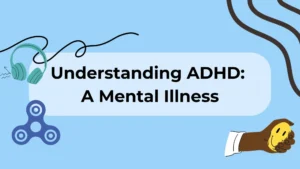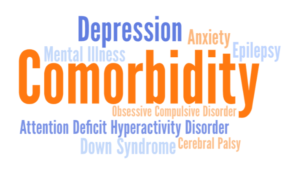
What are the Worst Things About Having ADHD?
Living with Attention Deficit Hyperactivity Disorder, more commonly known as ADHD, is like being under a double-edged sword; no matter what you do or how much you try to recover, you will still end up hurting yourself.

It is a neurodevelopmental disorder that affects people of all ages. Mental health practitioners have characterized it by three primary symptom clusters: inattention, hyperactivity, and impulsivity. These symptoms can vary in severity and presentation, making ADHD a highly individual experience.
Although Adderall is one of the most extensively recommended medications for treating short-term ADHD, which you can purchase here, many mental health specialists and therapists have suggested a lifestyle shift to continue living with this condition.
Unfortunately, a cure is yet to be discovered for ADHD, but with the help of therapy, lifestyle changes, and certain medications, ADHD can be managed. So, what are the worst things a patient experiences who’s suffering from ADHD? Continue reading to find out.
-
Constant Battle for Focus
One of the biggest battles for someone with ADHD is struggling to stay focused. It’s so intertwined that you almost lose your senses trying to figure out what to do and what not to think about.
Imagine this: you sit down to work on a project, determined to make progress. You open your laptop, but your eyes immediately dart to the unread notifications on your phone. As you reach for it, a thought pops into your head, reminding you of that errand you must run.
This constant mental tug-of-war is the everyday reality for individuals with ADHD. Their minds are like bustling marketplaces, filled with ideas, stimuli, and impulses, all vying for attention. Fulfilling out distractions and focusing on one task simultaneously becomes a monumental challenge.
-
Crippling Inner Critic
How do you feel when you miss a deadline or don’t attend a meetup with your friends? You scold yourself for a moment, and that’s it, right? Or, at most times, you won’t even care about it and will probably decide to make up for it later.
But, that is not the case with people who have ADHD.
There is a constant inner battle when your conscience keeps berating you for missed deadlines, forgotten meetings, and other careless mistakes. This relentless critic fuels feelings of inadequacy and shame, making it difficult to believe in yourself and your abilities.
Individuals who deal with ADHD tend to feel worthless for even the most minor mistakes. It is also one of the reasons why they have significant performance anxiety before doing even the most mundane of chores.
-
The Frustration of Misunderstood Intentions
Living with ADHD often involves navigating a world that isn’t designed for your neurotype. This can be especially challenging when your intentions are misunderstood, leading to frustration, isolation, and feeling judged.
For individuals with ADHD, forgetfulness and impulsivity can be common occurrences. Unfortunately, others often misinterpret these harmless traits as laziness, rudeness, or a lack of intelligence. This can be incredibly frustrating, as the individual with ADHD knows their intentions are pure, yet they must constantly explain and defend themselves.
Imagine having to explain the intricacies of ADHD to everyone you meet. This constant need to educate others can be draining, emotionally and mentally. The individual with ADHD may feel like they are constantly on trial, having to prove their worth and intelligence. This can lead to a sense of exhaustion and resentment.
The frustration of misunderstood intentions can create a vicious cycle. When individuals feel judged and misunderstood, they may become withdrawn and avoid social interaction. It further reinforces the negative perceptions of others, perpetuating the cycle.
-
Being On An Emotional Rollercoaster
Having ADHD can feel like riding a never-ending roller coaster, with emotions swinging wildly from exhilarating highs to crushing lows. This emotional volatility is often driven by impulsivity and emotional dysregulation, two common characteristics of the condition.
- The Heightened Emotional Landscape: People with ADHD often experience emotions more intensely than others. This can lead to unbridled joy and excitement and intense frustration, anger, and sadness. The sudden shifts between these extremes can be overwhelming and difficult to manage.
- 2. The Impulsive Response: Impulsivity is a hallmark of ADHD and often manifests itself in the emotional realm. Individuals may act without thinking, expressing their emotions in ways they later regret. This can make it challenging to maintain stable relationships and navigate social interactions effectively.
Remember, the emotional rollercoaster is not a character flaw but a symptom of a neurodevelopmental condition. With understanding, support, and effective strategies, individuals with ADHD can learn to manage their emotions and thrive in all aspects of life.
Also, here are a few strategies that will help you deal better with ADHD in daily life!
- Create a structured environment: Minimize distractions, establish routines, and break down tasks into manageable steps.
- Utilize technology: Use apps and tools that block distractions, set reminders, and provide time management assistance.
- Exercise regularly: Physical activity helps improve focus and concentration.
- Seek professional support: Therapy can teach coping mechanisms and strategies for managing ADHD symptoms.
- Join a support group: Connecting with others who understand the challenges of ADHD can provide encouragement and understanding.
Conclusion
Living with ADHD is more challenging than one can simply imagine. It’s a troubled state where you’re in a constant battle with yourself. Whether you should eat this or not, do this or not, see a friend or not, how to do even the simplest tasks!
The challenge is real, and the battle remains constant. This is why you need help if you continuously struggle with this condition. Adderall helps with managing ADHD as a short-term solution. You can always place an order with us.
Along with that, you should consider getting therapy for yourself and join a support group. You will eventually notice the huge difference it can make.


